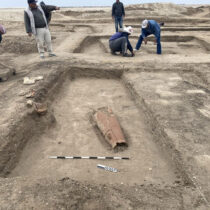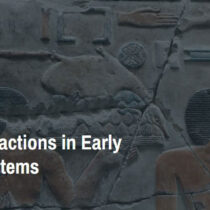Alexander’s conquests transformed Greece and Asia, and the city was essential to this process of transformation. The city was a means to propagate the Greek way of life throughout the east , to maintain Greek political and cultural supremacy over newly conquered lands, Hellenistic dynasts also found found an important and enduring means of propaganda and self-promotion in the city. However, the new political, social and economic conditions resulting from the establishment of the Hellenistic kingdoms profoundly affected the Greek city. With the notable exception of the Ptolemies in Egypt, the Hellenistic kings built new cities and renovated and refurbished existing ones. The result was that urban life flourished thoughout the Greek east. City builders continued to rely on grid planning to create new cities, and the barrack-like residential blocks, the strong city walls and the independently fortified acropolis are often a reflection of the military nature of the new cities. At the same time such uniform arrangements allowed for the rapid settlement of a large incoming population and emphasized the essential equality of all the new citizens, whatever their origins. In both new cities and existing ones grandiose public buildings were erected for the benefit of the citizens both by the Hellenistic kings and the local aristocracy. This spate of new construction visually transformed the Greek city and created some of the most stunning visual urban landscapes of the ancient world. The Hellenistic city is often seen as a hiatus between the achievements of the Classical world and the new impetus brought by the Romans to urban life.This view is untenable. Hellenistic kings and the local aristocracy had a beneficial effect on the Greek city transforming it and offering a high level of prosperity and material comfort to many ordinary citizens.
Hellenistic cities
21 Aug 2012
by Archaeology Newsroom
- A
- A
- A

